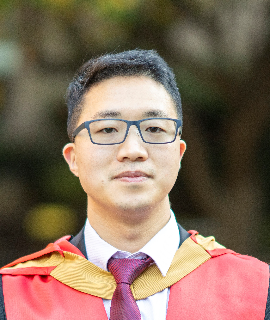Title : CRISPR/Cas12a-powered ultrasensitive immunosensing for the detection of single microorganisms
Abstract:
Waterborne pathogens, such as Cryptosporidium parvum, pose a major threat to public health globally, and this requires screening of drinking and environmental water for low number of contaminating microbes. However, current detection approaches generally require trained experts with sophisticated instruments, and not suitable for large-scale screening and rapid outbreak response. Recent advances in ultrasensitive CRISPR/Cas-based biosensing continue to expand the range of detectable molecular targets, but larger structures, such as single microbes, could not be directly detected so far. Here, we report an ultrasensitive CRISPR/Cas-based immunosensing method suitable for microbial detection which links antibody-based recognition with CRISPR/Cas12a amplification through an antibody-DNA conjugate. This approach can detect whole 4 µm size Cryptosporidium parvum oocysts with a linear range from 6.25 – 1600 oocysts/mL, at a maximum sensitivity of single oocyst per sample. It can remain effective for various complex sample matrices. This method uses the same experimental setup as a conventional ELISA thus helping to avoid microscopy-based identification for Cryptosporidium, which represents the gold-standard but requires high level expertise and time-consuming manual counting. This work highlights the unexpected potential of CRISPR/Cas-based biosensing for ultrasensitive detection of large whole microorganism structures and opening a pathway towards sensing of new biologically and medically significant targets.
What will audience learn from your presentation?
- A CRISPR/Cas12a-based ultra-sensitive whole waterborne pathogen detection method.
- A hybrid single strand DNA oligo and antibody conjugate targeting the pathogen surface antigen.
- Capable with plate reader for conventional ELISA assay with same experimental setup.
- 3 orders of magnitude quantitative detection with maximum single microorganism sensitivity for Cryptosporidium parvum oocysts.
- Suitable for direct testing of diluted mud samples from water treatment plant.


